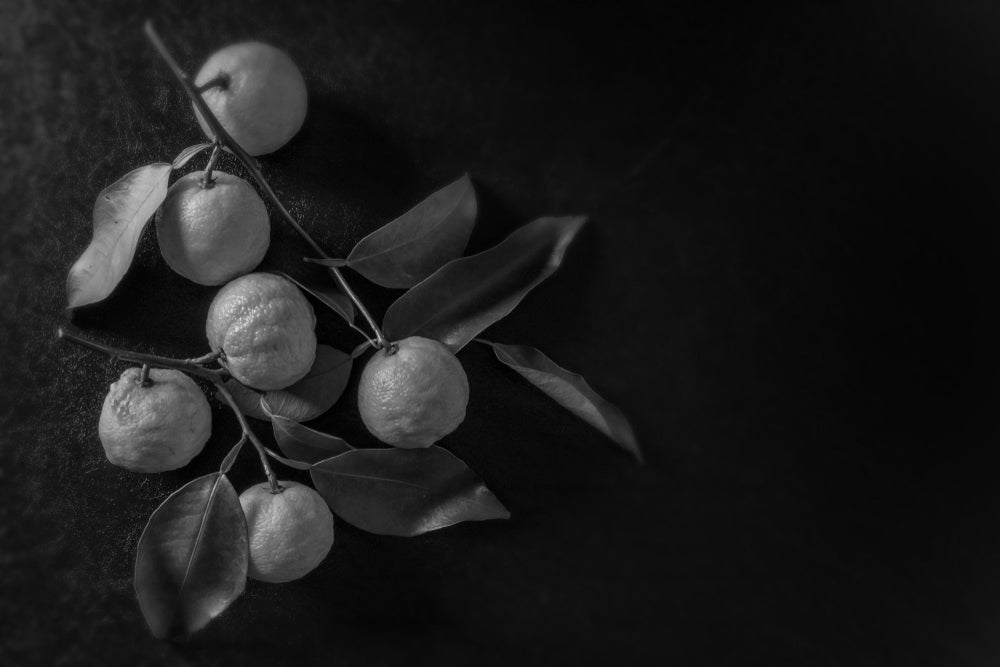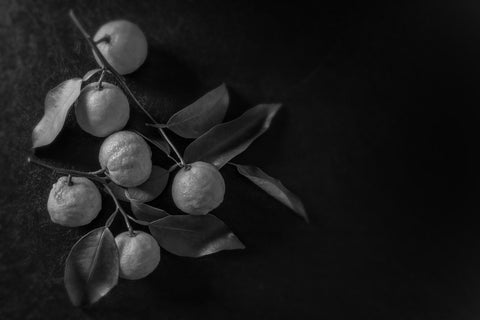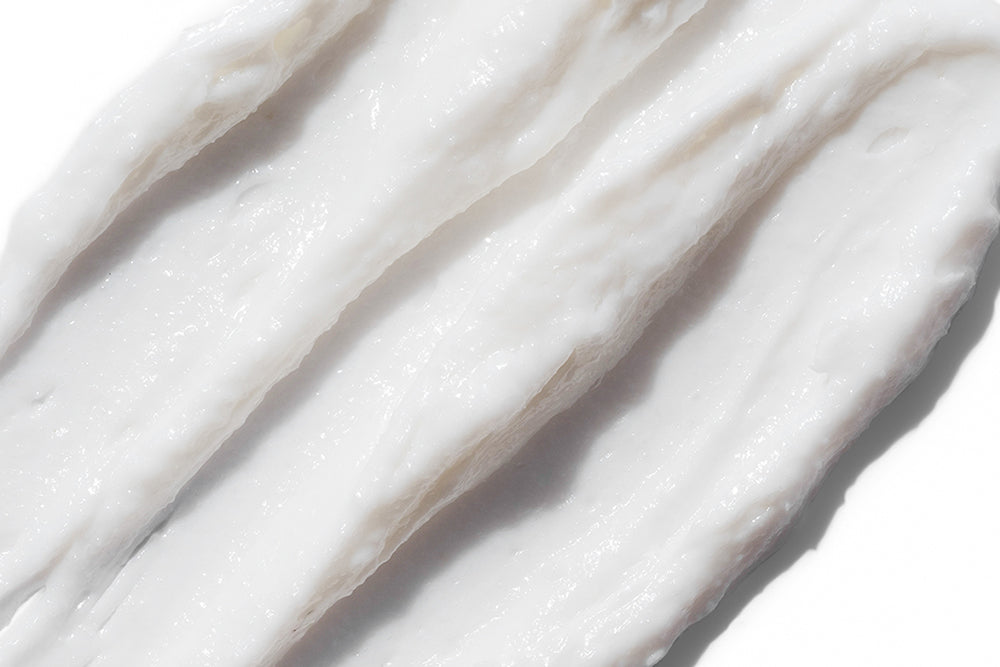
ingredient focus: yuzu

the bottom line
Commonly steeped in tea or used in a ritual ceremony to ward off evil spirits, yuzu is an enticing and deliciously fragrant citrus fruit. Yuzu fruit also plays a starring role in skincare, with its ability act as an anti-inflammatory and antioxidant*, brighten skin, stimulate collagen production, increase moisture levels, and even help in healing wounds. Read on to learn more about the charms of yuzu.
first layer: the history of yuzu
Citrus junos, also known as yuzu, yuja, or tanaka, is a citrus plant native to Korea, Japan, and China, with a small fruit resembles that of a small grapefruit with pebbled skin. Yuzu tea is enjoyed in Korea, with sliced fruit steeped in hot water. Syrup from the fruit is commonly used as remedy for the common cold. In Japan, the fruit is placed into baths during the winter solstice to ward off bad luck. Yuzu is extremely hardy and is capable or growing in cold regions where more sensitive citrus plants would not survive.
second layer: the science of yuzu
Like many other plants, yuzu’s individual components each contain specific properties. Both the peel and seed of yuzu are high in vitamin C, citric acid, and polyphenols* including flavonoids* which contain high levels of anti-inflammatory and antioxidant activity. The antioxidant level of yuzu seed has been determined to be higher than that of the peel. The husk of the yuzu seed itself contains nomilin, a novel tyrosinase inhibitor. Some of the most remarkable properties of this small fruit include the following:
- brightening: Multiple parts of the yuzu fruit have been shown to naturally brighten skin tone. In a study in which nomilin isolated from yuzu seed was added to melanoma cells, melanin content decreased in a dose-dependent manner and showed skin-whitening activity similar to that of arbutin. Melanin content was also decreased by yuzu peel extract which showed better activity than kojic acid. In a separate study, peptides derived from yuzu fruit significantly decreased melanin content to a level similar to that of arbutin. Extract from callus of yuzu decreased the melanin content at 1.85 times the level of arbutin.
- antioxidant: Yuzu’s antioxidant ability has been well-established in multiple scientific studies. One study of yuzu essential oil found that a 1-2% concentration of yuzu had equivalent antioxidant activity to that of 100% tocopherol (vitamin E). Exposure to reactive oxygen species (ROS)* triggers skin aging via destruction of the antioxidant system with subsequent wrinkle formation and hyperpigmentation. Excessive levels of ROS can result in the loss of elasticity and collagen fibers in the connective tissue of the dermis. Yuzu extract has also demonstrated a reduction in the production of ROS, with a study demonstrating that peptides derived from yuzu significantly decreased the intracellular concentration of ROS in irradiated keratinocytes*.
- anti-inflammatory: Yuzu’s traditional use as an anti-inflammatory is equally well-supported by the science. A study of limonene derived from yuzu peel showed that limonene was able to inhibit cytokines*, ROS production, and eosinophil* migration.
- collagen stimulation: Yuzu has additionally been shown to stimulate collagen production. In one study, treatment of radiated fibroblasts* with peptides derived from yuzu significantly increased the levels of type I collagen*, the most abundant collagen of the human body. Another study using an extract of yuzu promoted the proliferation of fibroblasts and synthesis of procollagen, the precursor of collagen.
- moisturization: Moisture levels in the skin are increased by yuzu as well. Treatment with yuzu peptides showed an increase the levels of filaggrin*, an epidermal barrier protein, and serine palmitoyltransferase (SPT), which is involved in ceramide* synthesis of intercellular lipids. Both are important factors in hydration of the skin.
- wound healing: Treatment of wounds with yuzu extract has been shown to significantly decrease the time to wound closure by increasing fibroblast proliferation and migration.
third layer: skincare and yuzu
Given the above science behind yuzu fruit, there are a few potential ways in which it can be incorporated into skincare:
- antioxidant: antioxidants form part of a well-rounded skincare regimen.
- antiaging: extrinsic skin aging is triggered by exposure to ultraviolet (UV) radiation, including wrinkle formation, hyperpigmentation, and inflammation by inducing the degradation of collagen and increasing inflammatory mediators. By increasing moisture levels as well as stimulating collagen production and targeting hyperpigmentation, yuzu is an excellent addition to formulations designed to address key issues of aging skin.
- wound care: while research is still limited, yuzu shows excellent potential as a natural agent for healing open wounds.
fourth layer: how we do it
Yuzu is one of our favorite ingredients, for its bright and clean citrus fragrance as well as its ability to fight free radicals and brighten skin. We source our yuzu from Japan and have incorporated it into our blue lotus body oil and our bamboo & yuzu facial scrub.
All this and more at www.anokhaskincare.com .
xx
anokha
references:
- Choi MH, Yang SH, Kim ND, Shin HJ. Nomilin from yuzu seed has in vitro antioxidant activity and downregulates melanogenesis in B16F10 melanoma cells through the PKA/CREB signaling pathway. Antioxidants 2022; 11: 1636-1655.
- Tachibana S, Tanimoto S, Murai Y, Okada Y, Nomura M. Chemical constituents of yuzu and lime essential oils and their antioxidative activities. Annual Report of Research Institute 2011; 2: 45-51.
- Ko HJ, Sim SA, Park MH, et al. Anti-photoaging effects of upcycled Citrus junos seed anionic peptides on ultraviolet-radiation-induced skin aging in a reconstructed skin model. Int J Mol Sci 2024; 25: 1711-1725.
- Adhikari D, Panthi VK, Pangeni R, Kim HJ, Park JW. Preparation, characterization, and biological activities of topical anti-aging ingredients in a Citrus junos callus extract. Molecules 2017; 22: 2198-2213.
- Jung YY, Ha IJ, Lee M, Ahn KS. Skin improvement with antioxidant effect of yuja (Citrus junos) peel fractions: wrinkles, moisturizing, and whitening. Antioxidants 2023; 12: 51-65.
- https://www.naturalsolution.co.kr/w/eng/home
- Hirota R, Roger NN, Nakamura H, Song HS, Sawamura M, Suganuma N. Anti-inflammatory effects of limonene from yuzu (Citrus junos Tanaka) essential oil on eosinophils. J Food Sci 2010; 75(3): H87-92.
definitions:
antioxidant: an antioxidant is a compound that inhibits oxidation. free radicals create oxidative stress and an inflammatory response which in turn can damage DNA and result in injury to the epidermal and dermal layers of the skin. in the skin, this manifests as premature aging with decreased elasticity leading to increased wrinkling, age spots, and decreased skin tone. antioxidants stabilize free radicals, which in turn limits their ability to damage the body.
ceramides: ceramides are lipids found in skin cells which comprise approximately 50% of the epidermis. they are essential for forming the skin's natural barrier to seal in moisture and preventing the entry of harmful elements. lower ceramide levels have been linked to skin diseases including acne, psoriasis, eczema, and rosacea.
collagen: a fibrous protein that forms part of the dermal matrix, connective tissue, cartilage, and bone
cytokines: cytokines are small proteins that are required to control the growth and activity of other immune system cells and blood cells. cytokines affect the growth of blood cells and other cells crucial to the body’s immune and inflammation responses.
fibroblast: a fibroblast is a cell that contributes to the formation of connective tissue within the body. fibroblasts secrete collagen proteins which help to maintain the structural framework of the tissues.
filaggrin: a filament-aggregating protein which undergoes further processing in the stratum corneum to release free amino acids which assist in water retention.
keratinocytes: the primary cell of the epidermis, which constitutes 90% of epidermal skin cells. keratinocytes form a barrier against environmental damage and are shed every 45-60 days.
polyphenols: polyphenols are a large family of naturally occurring organic compounds characterized by multiples of phenol units. they are abundant in plants and include flavonoids.
reactive oxygen species (ROS): a type of unstable molecule that contains oxygen, and which can react with other molecules in a cell. they can damage DNA, RNA, proteins, and even cause cell death. also referred to as free radicals.
faq’s:
what is yuzu?
yuzu is a traditional Japanese fruit used to enhance the flavor and fragrance of the cuisine. it is also used in skincare and wellness regimens.
what does yuzu do for skin?
yuzu has been shown to act as an antioxidant, anti-inflammatory, skin brightener, and stimulator of collagen.
is yuzu safe for skin?
yuzu is considered safe for skin care products. derived from a natural plant source, it has been tested for safety and efficacy.
is yuzu extract vitamin C?
as a potent source of vitamin C, yuzu has been used to help brighten skin tone.
is yuzu tea good for skin?
yuzu tea can be useful in skin care given its ability to brighten skin, increase collagen production, boost moisture levels, and act as an antioxidant.



leave us a comment
This site is protected by hCaptcha and the hCaptcha Privacy Policy and Terms of Service apply.